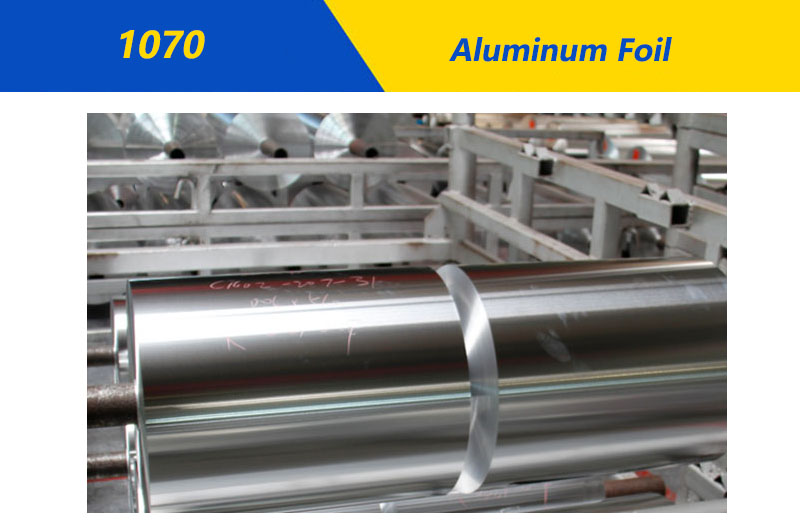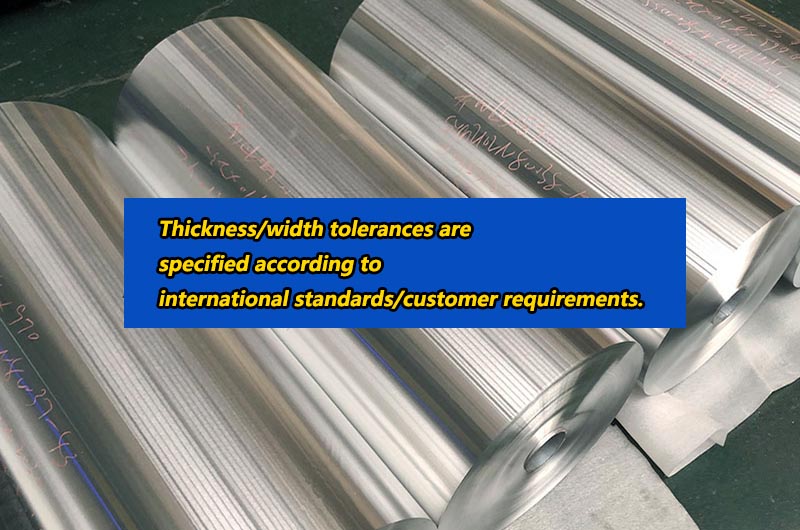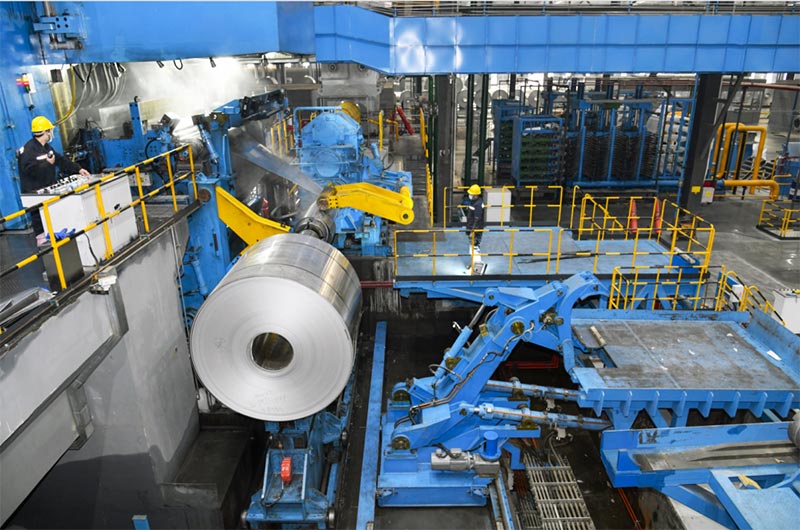- 1070 Aluminum Foil Composition and Properties
- Specification of 1070 Aluminum Foil
- 1070 Aluminum Foil Advantages
- 1070 Aluminum Foil Technical Parameters
- 1070 Aluminum Foil Applications
- 1070 Aluminum Foil Manufacturing Process
- 1070 Aluminum Foil Faqs
- People also Asks about 1070 Aluminum Foil
Aluminum foil is a versatile material widely used in various industries, and among the numerous alloys available, 1070 aluminum foil stands out for its unique properties and applications.

1070 Aluminum Foil Composition and Properties
1070 Aluminum Foil Chemical Composition
1070 aluminum foil is primarily composed of aluminum, with a minimum purity of 99.70%. This high level of purity ensures the foil's excellent electrical conductivity and corrosion resistance.
- Aluminum (Al): 99.70% min
- Iron (Fe): 0.25% max
- Silicon (Si): 0.20% max
- Copper (Cu): 0.04% max
- Zinc (Zn): 0.04% max
- Manganese (Mn): 0.03% max
- Others: 0.03% max (each), 0.15% max (total)
1070 Aluminum Foil Physical Properties
- Lightweight: Aluminum is known for its low density, making 1070 foil incredibly lightweight.
- Ductility: The foil is highly ductile, allowing it to be easily shaped and molded for various applications.
- Reflectivity: Aluminum has high reflectivity, making 1070 foil an excellent choice for applications requiring reflective surfaces.
Specification of 1070 Aluminum Foil
Temper: O (Annealed)
Thickness: Typically ranging from 0.01mm to 0.2mm, but can be customized based on specific requirements.
Width: Customizable based on application needs, commonly available in widths ranging from 100mm to 1650mm.
Surface Finish: Both sides of the foil are generally free from oil, stains, and other contaminants. The surface is smooth and reflective.
Tolerance: Thickness and width tolerances are specified according to international standards or customer requirements.
Inner Diameter of Core: Commonly 76mm or 152mm (3 inches or 6 inches), but can be customized.
Packing: Typically packed in wooden cases or as per customer requirements to ensure safe transportation.

1070 Aluminum Foil Advantages
1. High Purity
The 99.70% minimum aluminum purity ensures superior performance in terms of electrical conductivity and corrosion resistance.
2. Lightweight
The lightweight nature of 1070 aluminum foil makes it easy to handle and transport, contributing to its popularity in various industries.
3. Versatility
Its versatility allows for a wide range of applications, from industrial uses in electrical components to everyday applications in packaging.
1070 aluminum foil stands as a remarkable material with a multitude of applications, driven by its high purity, lightweight nature, and exceptional conductivity.
Whether contributing to the efficiency of electrical systems or enhancing the aesthetics of everyday items, this foil continues to play a crucial role in diverse industries, showcasing the adaptability and excellence of aluminum alloys in modern manufacturing.
1070 Aluminum Foil Technical Parameters
- Density: Approximately 2.70 g/cm³
- Melting Point: Approximately 660.3°C
- Tensile Strength: Varies with thickness and temper, but typically around 95 MPa (annealed condition).
- Elongation: Varies with thickness and temper, but typically around 25% (annealed condition).
- Electrical Conductivity: High electrical conductivity due to its purity (minimum 99.70% aluminum).
- Thermal Conductivity: Aluminum has good thermal conductivity, making it suitable for various applications.
1070 Aluminum Foil Applications
1070 Aluminum Foil for Electrical Industry
1070 aluminum foil is widely used in the electrical industry due to its high electrical conductivity. It is commonly employed in the production of capacitors, transformers, and other electrical components.
1070 Packaging Aluminum Foil
The foil's lightweight and malleable nature make it an ideal material for packaging. It is often used in food packaging, pharmaceuticals, and various consumer goods.
1070 Reflective Insulation Aluminum Foil
Thanks to its high reflectivity, 1070 aluminum foil finds applications in reflective insulation systems, helping to regulate temperature and save energy in buildings.
1070 Decorative Aluminum Foil
The foil is also utilized for decorative purposes, such as in crafts, artwork, and even architectural elements, where its reflective surface adds aesthetic value.

1070 Aluminum Foil Manufacturing Process
1. Casting
The process begins with the casting of aluminum ingots, which are heated and shaped into rolling slabs.
2. Hot Rolling
The rolling slabs are then hot-rolled into thin sheets, creating the initial form of the aluminum foil.
3. Cold Rolling
The hot-rolled sheets undergo a cold-rolling process, where they are further reduced in thickness to achieve the desired foil thickness.
4. Annealing
The foil is then annealed, a heat treatment process that enhances its flexibility and softness.
1070 Aluminum Foil Faqs
What is the primary application of 1070 aluminum foil?
1070 aluminum foil is commonly used in the electrical industry for capacitors, transformers, and other electronic components. It is also utilized in packaging, reflective insulation, and decorative applications.
How is 1070 aluminum foil produced?
The foil is typically produced through a process involving casting, hot rolling, cold rolling, and annealing. These processes help achieve the desired thickness, mechanical properties, and surface finish.
What makes 1070 aluminum foil suitable for electrical applications?
The high purity of 1070 aluminum foil, with a minimum aluminum content of 99.70%, contributes to its excellent electrical conductivity, making it an ideal choice for electrical components.
Can the thickness and width of 1070 aluminum foil be customized?
Yes, manufacturers often offer customization options for thickness and width based on the specific requirements of customers and applications.
How is 1070 aluminum foil packed for transportation?
The foil is typically packed in wooden cases or as per customer requirements to ensure safe transportation and prevent damage during handling.
What is the significance of the annealing process in 1070 aluminum foil production?
The annealing process enhances the foil's flexibility and softness, making it easier to handle and shape for various applications. It also helps relieve internal stresses introduced during the rolling processes.
People also Asks about 1070 Aluminum Foil
- Does the aluminum foil trick work?
- What are the properties of 1070 aluminum?
- What is the thermal conductivity of aluminum 1070?
